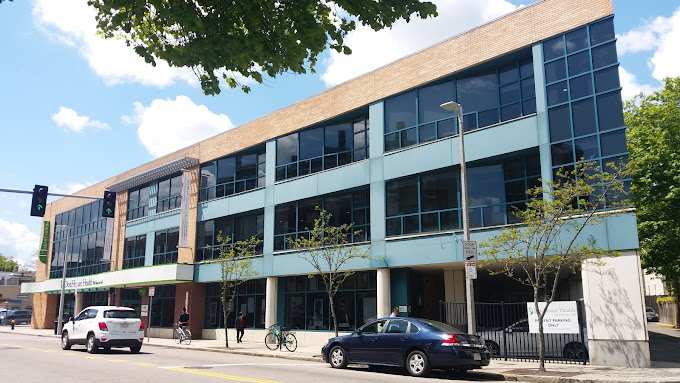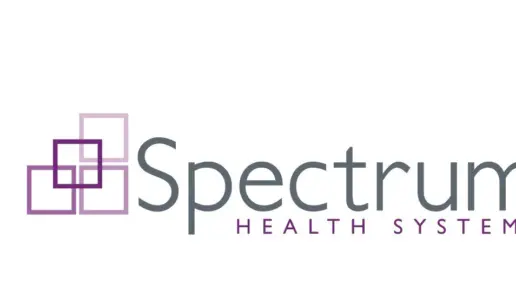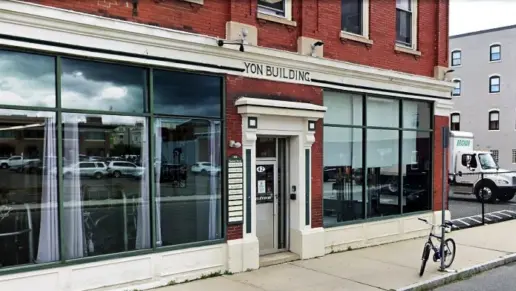Every nurse I've met with is useless and careless. They seriously need more parking, it's not available at all. Even with insurance and a high degree of health literacy, getting in for a simple visit was incredibly difficult.
About Dorchester House
Dorchester House Multi Service Center is an especially unique type of facility for people in Boston, Massachusetts with drug and alcohol addiction. Affectionately known as DotHouse, this facility is a comprehensive health care center and community center. I’ll explain more about what that means.
For people with drug and alcohol addiction this facility offers outpatient care for recovery. They offer medications for people with opioid addiction including Suboxone and naltrexone. These medications can help to lower your cravings and withdrawal symptoms. Meanwhile they also offer individual therapy to help you work on the mental and emotional aspects of addiction. They even have specialized rehab services for people with certain circumstances like those with a dual diagnosis or with chronic pain or HIV.
Here’s where this facility is uniquely comprehensive though: The addiction treatment is just one program they offer. They provide health care for a wide range of specialties from primary care to eye care. They also have numerous community services like a food pantry and fitness facilities.
There is one factor to keep in mind though. The addiction treatment program requires you to use DotHouse as your primary care physician too because this lets them coordinate your care smoothly. For ultimate convenience they offer evening hours so you can get your treatment without sacrificing work or other responsibilities.
 Payment Options
Payment Options
Private Insurance
Self-pay options
Financial aid
Per session
Sliding scale payment assistance
Medicare
Medicaid
 Levels of Care
Levels of Care
 Outpatient
Outpatient
Outpatient Programs (OP) are for those seeking mental rehab or drug rehab, but who also stay at home every night. The main difference between outpatient treatment (OP) and intensive outpatient treatment (IOP) lies in the amount of hours the patient spends at the facility. Most of the time an outpatient program is designed for someone who has completed an inpatient stay and is looking to continue their growth in recovery. Outpatient is not meant to be the starting point, it is commonly referred to as aftercare.
 Intensive Outpatient
Intensive Outpatient
Intensive outpatient programs (IOP) facilitate clients' sustained sobriety through high-level care aligned with their evolving needs. Clients engage in multiple treatment sessions per week, typically receiving between nine and 20 hours of outpatient care weekly. The frequency and intensity of treatment gradually decreases as clients stabilize. Many intensive outpatient rehabs offer a variety of services, including addiction counseling, recovery-focused life skills training, and medication assisted treatment (MAT). Evidence-based complementary therapies are also common.
 Aftercare
Aftercare
Rehab aftercare programs offer customized, wraparound support for clients in the maintenance phase of recovery. Many clients enroll in drug rehab immediately after completing intensive inpatient or residential care. Services encompass outpatient treatment but often extend long beyond the completion of a formal recovery program and typically include a variety of medical, mental health, and social service programs. Peer coaching, relapse prevention, 12 step program induction, and related services are commonly available.
 Intervention Services
Intervention Services
A drug intervention in Massachusetts provides friends and family the opportunity to share how a person's substance use has caused problems in their lives. The goal of the intervention is to encourage the person to get the treatment they need. Most rehab facilities offer intervention services that can help families prepare for the intervention and facilitate entry into treatment if the person agrees to get help.
 Programs
Programs
 Adolescence program
Adolescence program
 Adult program
Adult program
 Program for men
Program for men
 Program for women
Program for women
 Young adult Program
Young adult Program
 Children program
Children program
 Elderly program
Elderly program
 Settings & Amenities
Settings & Amenities
-
Private setting
 Treatment
Treatment
 Alcoholism
Alcoholism
A person who has alcohol use disorder (alcoholism) builds up a physical tolerance to alcohol. If they try to stop drinking, they experience withdrawal symptoms. Treatment is available for this condition, through alcohol rehab in Massachusetts. Treatment options include AA, detox, counseling, medication, residential programs, and outpatient treatment. Social and family support systems are crucial during and after treatment of any kind.
 Drug Addiction
Drug Addiction
Addiction is a highly complex problem, and drug rehab in Massachusetts is often necessary to address it. These programs treat physical, mental, and relational issues that are involved. Treatment empowers individuals to manage these issues without the use of drugs.
 Dual Diagnosis
Dual Diagnosis
Many of those suffering from addiction also suffer from mental or emotional illnesses like schizophrenia, bipolar disorder, depression, or anxiety disorders. Rehab and other substance abuse facilities treating those with a dual diagnosis or co-occurring disorder administer psychiatric treatment to address the person's mental health issue in addition to drug and alcohol rehabilitation.
 Mental Health and Substance Abuse
Mental Health and Substance Abuse
In Massachusetts, dual-diagnosis rehabs are usually the appropriate solution to treat co-occurring mental health and substance abuse disorders. These facilities typically employ medical and behavioral experts who use a range of interventions, together with the right healing environment, for you to achieve and sustain long-term recovery. Treatment usually includes evidence-based therapies (like cognitive behavioral therapy), recovery support meetings, 12-step facilitation, psychoeducation, skills training, and group therapy.
 Clinical Services
Clinical Services
 Cognitive Behavioral Therapy
Cognitive Behavioral Therapy
Cognitive Behavioral Therapy (CBT) is a therapy modality that focuses on the relationship between one's thoughts, feelings, and behaviors. It is used to establish and allow for healthy responses to thoughts and feelings (instead of unhealthy responses, like using drugs or alcohol). CBT has been proven effective for recovering addicts of all kinds, and is used to strengthen a patient's own self-awareness and ability to self-regulate. CBT allows individuals to monitor their own emotional state, become more adept at communicating with others, and manage stress without needing to engage in substance abuse.
 Dialectical Behavior Therapy
Dialectical Behavior Therapy
If you are experiencing intense, negative emotions, dialectical behavior therapy can help you learn how to regulate painful emotions and manage the interpersonal situations that generate them. This method is often used during substance use treatment in Massachusetts to help you develop better coping skills and avoid relapse.
 Group Therapy
Group Therapy
Group therapy is any therapeutic work that happens in a group (not one-on-one). There are a number of different group therapy modalities, including support groups, experiential therapy, psycho-education, and more. Group therapy involves treatment as well as processing interaction between group members.
 Individual Therapy
Individual Therapy
In individual therapy, a patient meets one-on-one with a trained psychologist or counselor. Therapy is a pivotal part of effective substance abuse treatment, as it often covers root causes of addiction, including challenges faced by the patient in their social, family, and work/school life.
 Motivational Interviewing
Motivational Interviewing
Four principles are key to motivational interviewing in Massachusetts. First, the therapist offers empathy for the client's feelings and experiences. Second, they encourage the client to believe in themselves and their ability to change. Third, the therapist refrains from imposing their own viewpoints. Lastly, the therapist helps the client identify discrepancies in their circumstances and future goals.
 Trauma Therapy
Trauma Therapy
Trauma therapy addresses traumatic incidents from a client's past that are likely affecting their present-day experience. Trauma is often one of the primary triggers and potential causes of addiction, and can stem from child sexual abuse, domestic violence, having a parent with a mental illness, losing one or both parents at a young age, teenage or adult sexual assault, or any number of other factors. The purpose of trauma therapy is to allow a patient to process trauma and move through and past it, with the help of trained and compassionate mental health professionals.
 Couples Therapy
Couples Therapy
Whether a marriage or other committed relationship, an intimate partnership is one of the most important aspects of a person's life. Drug and alcohol addiction affects both members of a couple in deep and meaningful ways, as does rehab and recovery. Couples therapy and other couples-focused treatment programs are significant parts of exploring triggers of addiction, as well as learning how to build healthy patterns to support ongoing sobriety.
 Family Therapy
Family Therapy
Research clearly demonstrates that recovery is far more successful and sustainable when loved ones like family members participate in rehab and substance abuse treatment. Genetic factors may be at play when it comes to drug and alcohol addiction, as well as mental health issues. Family dynamics often play a critical role in addiction triggers, and if properly educated, family members can be a strong source of support when it comes to rehabilitation.
 Life Skills
Life Skills
The life skills you'll learn in rehab range from financial management to practicing healthy self care. They help you learn how to solve problems and make decisions, as well as develop healthy interpersonal relationships – all of which are key to successful recovery.
 Recreational Therapy
Recreational Therapy
Recreational therapy helps you as you recover from drug and alcohol addiction in Massachusetts by giving you structured activities to improve your physical and mental health. By participating in sports, creative arts, or nature activities, you have a positive outlet for emotions and stress that may have otherwise triggered alcohol or drug use. This helps to foster a healthy sober lifestyle.



